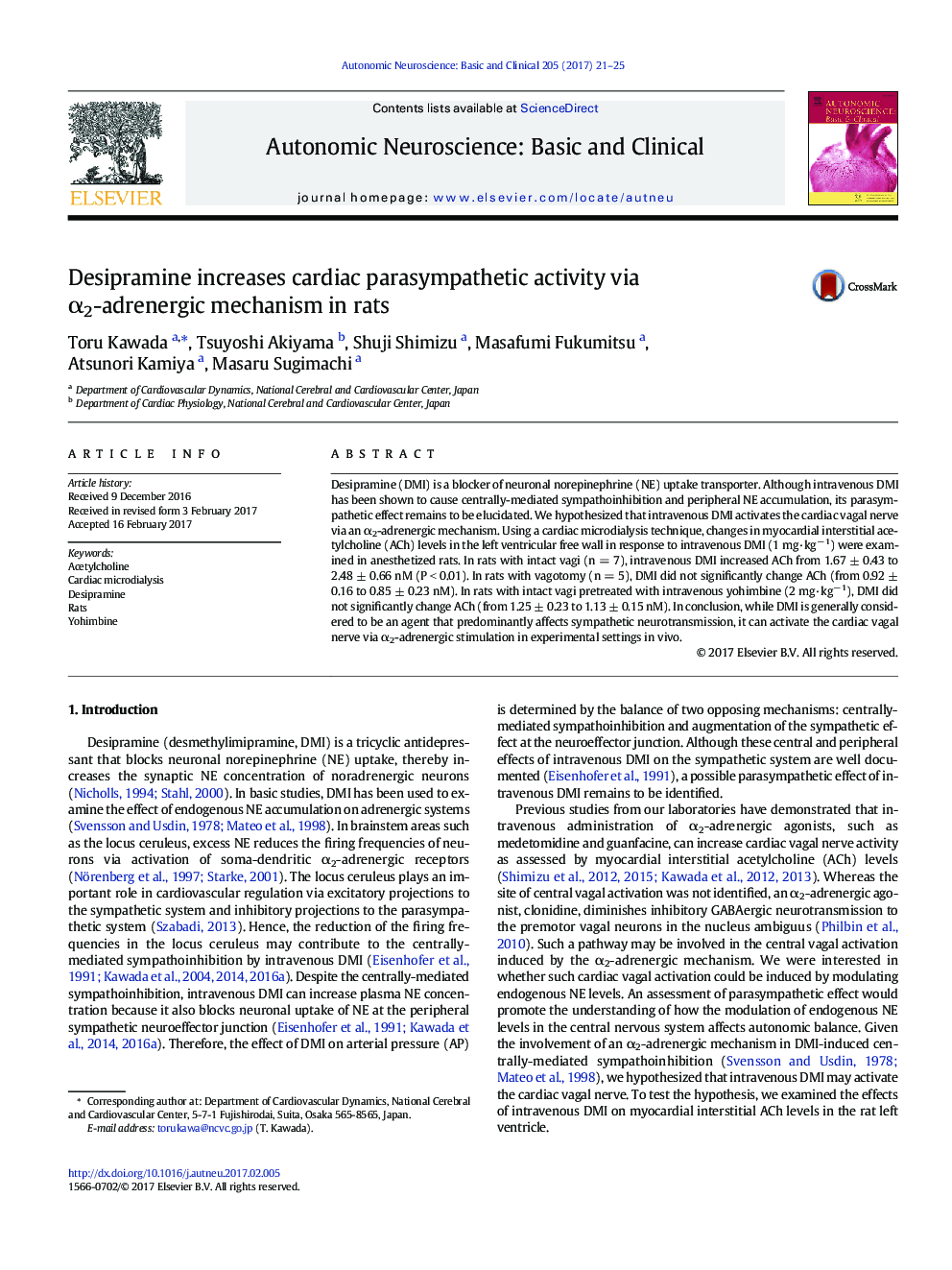| Article ID | Journal | Published Year | Pages | File Type |
|---|---|---|---|---|
| 5626108 | Autonomic Neuroscience | 2017 | 5 Pages |
Desipramine (DMI) is a blocker of neuronal norepinephrine (NE) uptake transporter. Although intravenous DMI has been shown to cause centrally-mediated sympathoinhibition and peripheral NE accumulation, its parasympathetic effect remains to be elucidated. We hypothesized that intravenous DMI activates the cardiac vagal nerve via an α2-adrenergic mechanism. Using a cardiac microdialysis technique, changes in myocardial interstitial acetylcholine (ACh) levels in the left ventricular free wall in response to intravenous DMI (1 mg·kgâ 1) were examined in anesthetized rats. In rats with intact vagi (n = 7), intravenous DMI increased ACh from 1.67 ± 0.43 to 2.48 ± 0.66 nM (P < 0.01). In rats with vagotomy (n = 5), DMI did not significantly change ACh (from 0.92 ± 0.16 to 0.85 ± 0.23 nM). In rats with intact vagi pretreated with intravenous yohimbine (2 mg·kgâ 1), DMI did not significantly change ACh (from 1.25 ± 0.23 to 1.13 ± 0.15 nM). In conclusion, while DMI is generally considered to be an agent that predominantly affects sympathetic neurotransmission, it can activate the cardiac vagal nerve via α2-adrenergic stimulation in experimental settings in vivo.
